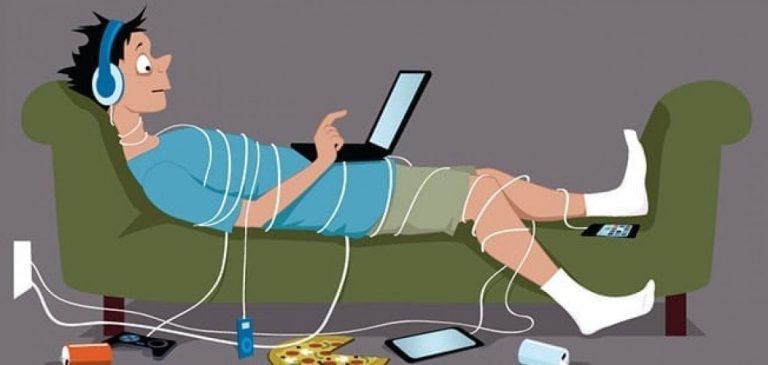
Are we becoming too dependent on technology to the point that it’s actually harming us?
By Nazarul Islam
In many ways, technology has made our lives better. Through smartphones, apps, and social media platforms we can now work more efficiently and connect in ways that would have been unimaginable just decades ago.
However, as we’ve grown to rely on technology for a lot of our professional and personal needs, most of us are asking tough questions about the role technology plays in our own lives. Are we becoming too dependent on technology to the point that it’s actually harming us?
We all need to take on the thorny question: is technology addictive?
What makes something addictive rather than just engaging? It’s a meaningful distinction because if technology is addictive, the next question could be: are the creators of popular digital technologies, like smartphones and social media apps, intentionally creating things that are addictive? If so, should they be held responsible?
To answer those questions, we’ve first got to agree on a definition of “addiction.” As it turns out, that’s not quite as easy as it sounds.
A word of caution: If we don’t have a good definition of what we’re talking about, then we can’t properly help people.
Over the past few decades, a lot of effort has gone into de-stigmatizing conversations about mental health, which of course is a very good thing. It also means that medical language has entered into our vernacular —we’re now more comfortable using clinical words outside of a specific diagnosis.
We’ve all got that one friend who says, ‘Oh, I’m a little bit OCD’, or that friend who says, ‘Oh, this is my big PTSD moment,’ Liam Satchell, a well-known lecturer in psychology at the University of Winchester and guest on the podcast, says. He’s concerned about how the word “addiction” gets tossed around by people with no background in mental health. An increased concern surrounding “tech addiction” isn’t actually being driven by concern among psychiatric professionals.
We need to understand, these sorts of concerns about things like internet use or social media use haven’t come from the psychiatric community as much. They’ve come from people who are interested in technology first.
A casual use of medical language can lead to confusion about what is actually a mental health concern. We need a reliable standard for recognizing, discussing, and ultimately treating psychological conditions.
If we don’t have a good definition of what we’re talking about, then we can’t properly help people. That’s why, according to experts, the psychiatric definition of addiction being based around experiencing distress or significant family, social, or occupational disruption needs to be included in any definition of addiction we may use.
But as qualified professionals point out: both popularizing medical language and the fear that new technologies are addictive aren’t totally modern phenomena.
Take, for instance, the concept of “reading mania”.
In the 18th Century, an author named J. G. Heinzmann had claimed that people who read too many novels could experience something called “reading mania.” This condition, Heinzmann explained, could cause many symptoms, including: weakening of the eyes, heat rashes, gout, arthritis, hemorrhoids, asthma, apoplexy, pulmonary disease, indigestion, blocking of the bowels, nervous disorder, migraines, epilepsy, hypochondria, and melancholy.
That is all very specific! But really, even the term ‘reading mania’ is medical.
Manic episodes are not a joke. But this didn’t stop people a century later from applying the same term to wristwatches.
Indeed, an 1889 piece in the Newcastle Weekly Courant had declared: “The watch mania, as it is called, is certainly excessive; indeed it becomes rabid.”
Similar concerns have echoed throughout history about the radio, telephone, TV, and video games.
It may sound comical in our modern context, but back then, when those new technologies were the latest distraction, they were probably really engaging.
People spent too much time doing them. And what can we say about that now, having seen it play out over and over and over again? We can say it’s common. It’s a common behavior. Obviously, this doesn’t mean it’s the healthiest one. It’s just not a medical problem.
Very few among us today, would argue that novels are in-and-of-themselves addictive — regardless of how voraciously you may have consumed your last favorite novel. So, what happened? Were these things ever addictive — and if not, what was happening in these moments of concern?
We cannot deny that: People are complicated, our relationship with new technology is complicated, and addiction is complicated — and our efforts to simplify very complex things, and make generalizations across broad portions of the population, can lead to real harm.
A professor of clinical psychology and psychological assessment at the University of Lausanne in Switzerland remarked: There’s a risk of pathologizing normal behavior. The Professor is engaged in studies, to understand how we can suss out what is truly addictive behavior versus what is normal behavior that we’re calling addictive.
For him and other professionals, this isn’t just a rhetorical game. He used the example of gaming addiction, which has come under increased scrutiny over the past half-decade. The language used around the subject of gaming addiction will determine how behaviors of potential patients are analyzed — and ultimately what treatment is recommended.
And anybody can realize that the gaming is actually a coping (mechanism for) social anxiety or trauma or depression.
(To be continued)
[author title=”Nazarul Islam ” image=”https://sindhcourier.com/wp-content/uploads/2021/05/Nazarul-Islam-2.png”]The Bengal-born writer Nazarul Islam is a senior educationist based in USA. He writes for Sindh Courier and the newspapers of Bangladesh, India and America. He is author of a recently published book ‘Chasing Hope’ – a compilation of his 119 articles.[/author]